News
House Speakership: Low turnout as Gbajabiamila launch Tajudeen’s declaration

Members-elect for the 10th House of Representatives, on Wednesday night, failed to honour the invitation of the Speaker, Rep. Femi Gbajabiamila, to a formal declaration event of Rep. Abbas Tajudeen, for the position of the Speaker of the 10th National Assembly.
The ruling All Progressives Congress (APC) and the President-elect, Asiwaju Ahmed Bola Tinubu, had adopted Rep. Tajudeen, a Member representing Zaria Federal Constituency of Kaduna State for the position of Speaker in the next Assembly, to be inaugurated in two weeks.
Zoning of the number four citizen’s position to the North West and the subsequent adoption of Tajudeen, it was gathered, was the brain child of the current Speaker, Gbajabiamila, who prefers to continue holding grip of the 10th House of Representatives thereby making it possible for Tinubu to control the incoming Assembly.
But Gbajabiamila, during a meeting organized Wednesday night by the Joint Task team for the 10th Assembly, an umbrella body for the actualization of Tajudeen’s ambition as Speaker, denied ever influencing the choice of the Kaduna born politician.
“North West geopolitical zone alone contributed 30% of the total votes for APC in the last elections” and ” if you conduct a proper research, the North West zone has not been considered for the number four position in the history of our parliament”, Gbajabiamila laboured to explain.
He was, however, shocked to see a hall filled with Support Groups, Journalists and spectators as the target audience (Members-elect) who posses the voting powers, largely boycotted the meeting.
Sensing that the little number inside the hall might not necessarily be Honourable Members and Members-elect, whom he has sought to address, Gbajabiamila requested for an executive session, apparently to see if he has enough numbers to make his anointed candidate Speaker; only to be bewildered that only 73 Members and Members-elect actually honoured the invitation.
The visibly angered Speaker was seen leaving the Osun Hall of Transcorp Hilton Hotel, Abuja, just two minutes after asking for an executive session.
A Lawmaker who was in attendance and spoke to our Correspondent on condition of anonymity, explained that, “Gbaja was not happy seeing the number of Lawmakers in attendant and I think he has sensed danger, as an experienced politician, that his preferred candidate won’t fly”.
Asked if he was going to support Tajudeen, the Lawmaker who just won his election under the Labour Party, said he was actually at the meeting, like some of his friends, who got invitation that Rep. Gbajabiamila was going to address both returning and new Members, only to see that it was a forum to sell the candidacy of Tajudeen.
“Some of my Colleagues understood the reason for the meeting, but innocent me, like few of my friends I interacted with in the hall, didn’t get the notion behind the invitation, untill we got here and we decided to sit and listen to whatever they had to say. I was personally disappointed seeing just a few Members in attendance, because I had thought they got all the votes, since it’s their party that selected this man for Speaker.
“But since their own Members cannot honour their party and most of them stayed off, is it we from the minorites that would support APC? Even though we are more than them in number, we would not be used to project mediocrity or support the composition of a rubber-stamped Assembly. The institution of the National Assembly is supposed to be an independent Arm of Government and not an appendage of another arm of Government.
“The minority caucus has been meeting lately and we shall make our stand known soon. We shall throw our weight behind anyone we feel have the capacity and independent mind to make the 10th House work for the people of Nigeria and not for an individual. We shall support such a person, regardless of any region or State he or she comes from. About 358 Members are going to cast their votes to decide the next Speaker and I don’t think, this number I’m seeing here tonight can make one-quarter of the deciding votes”, the Member-elect added.
News
Timi Frank To Tinubu: Abuse of Military Ranks Endangers Democracy, Invites Coup Temptations
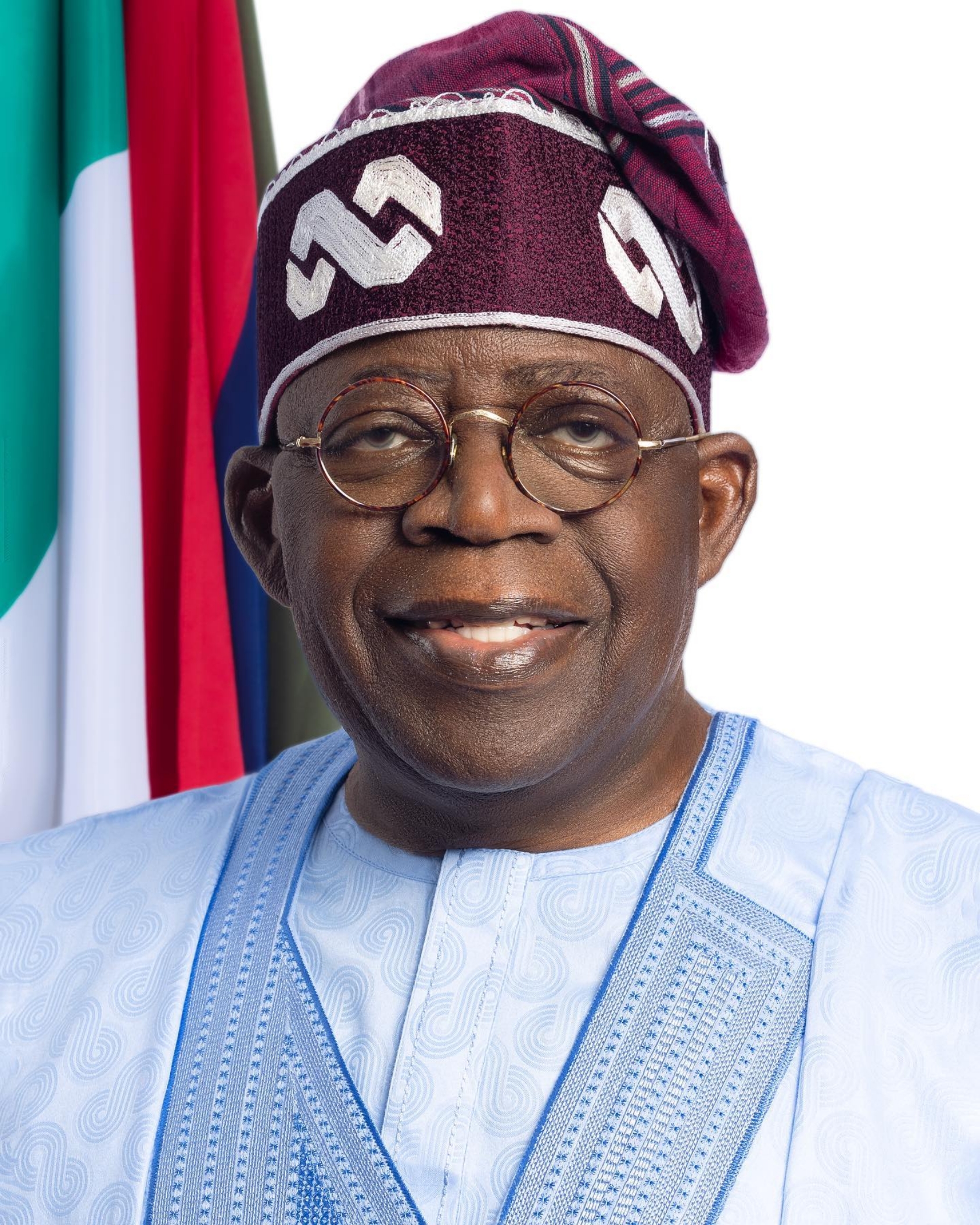
From Adeko Ukpa, Abuja
Abuja, Nigeria — Political activist and international affairs leader, Comrade Timi Frank, has issued a stern warning to President Bola Ahmed Tinubu over reported actions that point to the politicisation of the Nigerian Army, cautioning that any breach of military tradition, hierarchy and professional standards poses a grave danger to Nigeria’s democracy and national stability.
Frank, a former Deputy National Publicity Secretary of the All Progressives Congress (APC) and currently ULMWP Ambassador to East Africa and the Middle East as well as Senior Advisor to the Global Friendship City Association (GFCA), USA, described reports of a special and accelerated promotion of President Tinubu’s Aide-de-Camp (ADC) to the rank of Brigadier-General, barely months after elevation to Colonel, as deeply troubling and unacceptable if proven true.
“The Nigerian Army is not a personal guard unit of any President. It is a national institution governed by time-tested rules, traditions and professional standards.
Senior military ranks, especially the rank of General, are earned through years of service, sacrifice, command experience, rigorous training and competitive assessments.
They are not political rewards,” Frank said.
He stressed that promotions outside established procedures send a dangerous and demoralising signal to career officers who have devoted decades to service under strict institutional discipline.
According to him, such actions weaken command authority, erode morale and damage cohesion within the ranks and file.
Frank warned that history, particularly Africa’s recent history, has shown that the politicisation and personalisation of military institutions inevitably breed resentment, frustration and indiscipline, conditions that have often preceded military breakdowns and unconstitutional interruptions of democratic rule.
“Across West Africa today, we are witnessing the consequences of weakened civil-military relations,” he said. “From Mali to Burkina Faso and Niger, military juntas emerged in environments where institutions were abused, traditions disregarded and professionalism undermined.
“Even in those countries, the leaders of military regimes exercised restraint in matters of rank, mindful of the sensitivity of military hierarchy and the backlash that follows its abuse.”
He noted that it is alien to Nigeria’s democratic practice, and unheard of even during periods of military rule, to assign or manipulate the rank of General for aides-de-camp or personal convenience.
“No former military Head of State and no civilian President in Nigeria treated the rank of General with such recklessness,” he added.
Frank rejected any justification based on constitutional authority, insisting that being Commander-in-Chief demands restraint, not arbitrariness.
“Being Commander-In-Chief is not a license to erode institutions. Democracy survives on accountability, due process and respect for established norms,” he said.
He further cautioned that exposing an officer to irregular promotion places that officer at professional risk and invites institutional backlash, while dragging the Armed Forces into political controversy.
He urged the Minister of Defence to urgently advise the President on the far-reaching implications of any decision that undermines military tradition, morale and Nigeria’s international standing.
“This does not stand in isolation,” Frank said. “It fits a troubling pattern of preferential treatment for presidential aides within the security services, raising legitimate fears about the personalisation of state power and the erosion of institutional independence.”
Frank called for: Immediate public clarification of the legal and professional basis for the reported promotion; suspension or reversal of any action that violates Nigerian Army guidelines; and a firm commitment by the Presidency to end personalised promotions and the abuse of military ranks.
He also urged civil society organisations, retired military officers and professional associations to speak out, warning that silence in the face of institutional abuse carries severe consequences for civil-military relations.
“Nigeria’s democracy has already witnessed the weakening of several institutions. The Armed Forces must not be dragged down the same path.
“Undermining military tradition fuels frustration within the ranks and file and dangerously incentivises coup plotting as a means to truncate democracy. This is a red line Nigeria must never cross,” he said.
Frank insisted that the Nigerian Armed Forces must remain professional, apolitical and governed by established rules and not personal discretion.
Arts & Life
New initiative targets emotional growth, mental wellbeing of children in Nigeria

From Adeko Ukpa, Abuja
A new chapter in child development advocacy began in Abuja on Thursday, with the official launch of the “My Child’s Psyche Initiative (MCPI),” a foundation committed to transforming the emotional and psychological wellbeing of Nigerian children.
The Initiative aims to promote emotional intelligence, psychological resilience, and holistic growth for the nation’s young generation.
The launch featured the maiden Ultimate Caregiver Enlightenment Symposium & Book Presentation, themed “United in Care: Guiding Hearts, Growing Minds.”
The event drew parents, teachers, and caregivers determined to raise emotionally balanced and resilient children in today’s increasingly complex world.

L-R Hajiya Khadijah Mohammed Isa, Wife of Former Minister of Communications, Mrs Justina Ihenacho, Child’s Righy Advocate, Mrs Ruqayya Tofa-Basheer, Founder Ummi Africa, Dr. Maryam Tukur-Shagaya, Obstetrician and Gynaecologist, Mrs Eni Ogon, Founder, Broadoaks British School, Hajiya Hadiza Yusuf, SA, Welfare and Community Engagement, North Central Development Commission.
Speaking at the event, Madam Chyna Clifford, child development advocate, children’s book illustrator, and founder of MCPI, said the Initiative was inspired by the need to understand the inner world of children, a world often filled with wonder, dreams, anxieties, and untapped potential. She noted that societal pressures frequently drown out children’s emotions, leaving questions unanswered and feelings overlooked.
According to her, this year’s symposium focused on children on the autism spectrum, providing caregivers and educators with practical strategies to better support their unique developmental and emotional needs.
Madam Clifford stressed that MCPI seeks to bridge the gap between psychology and parenting by equipping caregivers with tools, resources, and knowledge to support children’s emotional and behavioural development both at home and in school.
“Emotional intelligence must be valued as highly as academic achievement if Nigeria is to build a stable, empathetic, and progressive society,” she said.
“If we are serious about raising a generation of emotionally intelligent, morally grounded, and socially responsible leaders, we must first understand the intricacies of a child’s mind. Healing the psyche of the child is healing the future of the nation,” she added.
The launch brought together educators, mental health professionals, and caregivers for a day of learning, reflection, and practical engagement.
Dr. Adaobi Okeke, a guest speaker, delivered a session on “Learning Differences & Neurodiversity (ADHD, Dyslexia & Autism),” highlighting how parents and teachers can better support neurodivergent children both at home and in school.
She also emphasized the need to reduce stress during pregnancy as a critical factor affecting children’s neurodevelopment.
An obstetrician and gynaecologist, Dr. Maryam Tukur-Shagaya, spoke on “Postpartum Struggles and the Emotional Journey of Motherhood,” stressing the importance of supporting the mental wellbeing of new mothers, whose emotional challenges are often overlooked.
The founder of Ummi Women Empowerment Foundation (Ummi Africa), Mrs. Ruqayya Tofa-Basheer, encouraged women to prioritise self-care and work–life balance, offering practical strategies for emotional regulation in high-pressure environments.
An educationist and founder of Broadoaks British School, Mrs. Eni Ogon, highlighted the need for stronger collaboration between schools and parents to ensure children’s mental wellness is nurtured alongside academic development.
The symposium reflected MCPI’s core mission of fostering emotional resilience and holistic development at all stages of childhood.
In closing, the Initiative extended an open invitation to families, educators, and caregivers: “Come, learn, unlearn, and relearn with us – for the sake of the minds we’re nurturing and the future we’re shaping.”
With its official launch, according to the founder, MCPI has positioned itself at the forefront of national conversations on child psychology, emotional wellbeing, and the urgent need to raise a generation that is not only brilliant but also balanced, not only informed but also inspired, and not only successful but genuinely humane.
News
Timi Frank Weeps for ‘Adamawa Nine’, Demands Justice for Victims
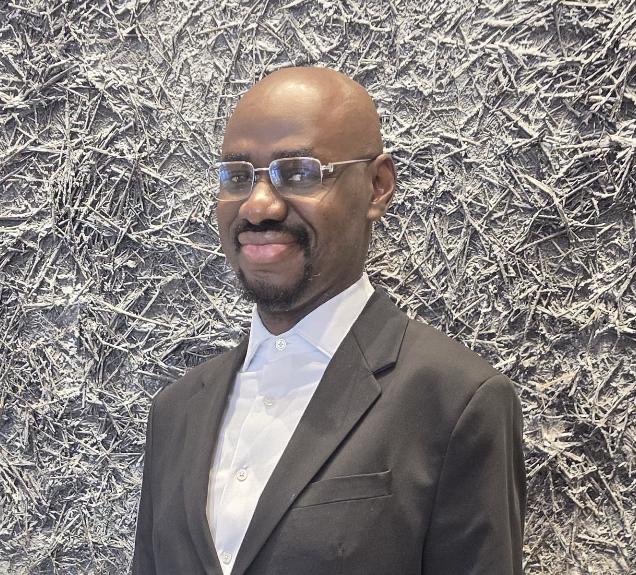
From Adeko Ukpa
Former Deputy National Publicity Secretary of the All Progressives Congress (APC), Comrade Timi Frank, has condemned in strong terms the recent killing of nine protesting women in Adamawa state by military operatives.
Soldiers had allegedly opened fire on protesting women in the Lamurde Local Government Area of Adamawa State on Monday.
Also, 51 others were said to have been hospitalised where most of them are still receiving treatment for varying degrees of gunshot wounds, many of them life-threatening.
Frank in a statement in Abuja described the killing of the nine women as “senseless, unforgivable, inhuman and avoidable.”
He noted that the victims – ordinary women, mothers and breadwinners who had stepped out only to protest the insecurity consuming their communities – were met with lethal force when all they sought was protection for their children. “Their only offence was demanding safety,” he lamented.
The incident, which has triggered widespread outrage, adds to what Frank called a mounting record of state violence and military impunity in Nigeria and across Africa.
He cited troubling statistics indicating that over 10,000 Nigerian youths have been killed or disappeared in recent years through military operations and extrajudicial actions.
“This culture of violence and unaccountability must end,” he declared, his voice breaking with emotion.
Frank rejected what he described as the government’s habit of announcing panels of inquiry that ultimately serve as “political theatre” designed to bury justice.
From the #EndSARS killings at Lekki Toll Gate to crackdowns in Cameroon, Tanzania, Kenya, Uganda and Zimbabwe, he said, those who issue shoot-to-kill orders have repeatedly escaped responsibility. “This time, we will not accept delays, excuses or another meaningless probe,” he vowed.
The ULMWP Ambassador to East Africa and the Middle East issued a set of demands he said must be met urgently.
He called for the arrest and prosecution of military officers – both those on the ground and their commanders – who played any role in what he described as the “barbaric” slaughter of the Yola Nine.
He insisted that the federal and state governments owe full compensation to the bereaved families, including scholarships for the victims’ children and long-term welfare plans to prevent the tragedy from plunging entire households into destitution. “These women must not die in vain,” he said.
Given what he termed the consistent failure of Nigeria’s justice system to punish human rights violations, Frank urged the International Criminal Court (ICC) to open investigations into military abuses in Nigeria and across Africa.
Frank who also serves as the Senior Advisor to the Global Friendship City Association (GFCA), USA, further demanded sanctions, travel bans and international prosecutions for military leaders who authorise or enable the killing of unarmed civilians.
Frank also called on the global community—human rights organisations, civil society groups, women’s coalitions and all citizens—to amplify their voices for the Yola Nine. In a direct appeal, he urged President Donald Trump and the U.S. government to speak out, demand accountability, and support international action.
“The U.S. has shown willingness to stand with oppressed African citizens. We appeal for that moral leadership now,” he stated.
He said the tragedy is more than a national wound; it is “a stain on Africa’s conscience” and a test of whether governments will continue to allow soldiers, whose duty is to protect, to open fire on peaceful citizens without consequence.
“The killing of the Yola Nine is a tragedy Nigeria must not brush aside,” he said. “Justice must be non-negotiable. Accountability must be immediate. And this barbarism must never happen again.”
-
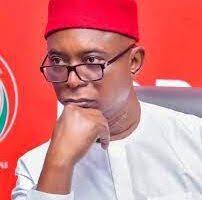
 Opinion9 months ago
Opinion9 months agoAnioma State: A Necessary Proposal Rooted in Strategic Advantage
-
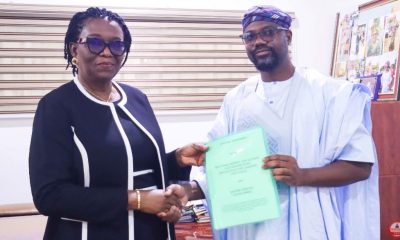
 Business & Economy1 year ago
Business & Economy1 year agoNASENI, Qietur partner to build 3000 Housing Units for Staff
-
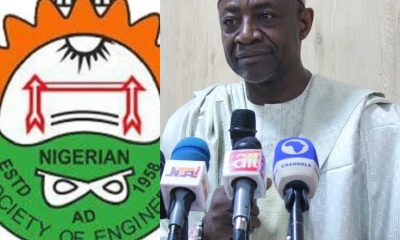
 Business2 months ago
Business2 months agoLithium boom has reshaped Nasarawa’s economy, says Prof Haruna
-
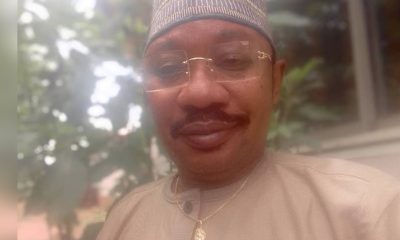
 Law1 year ago
Law1 year agoHuman Right and Law Enforcement in Nigeria: A Critical Analysis
-
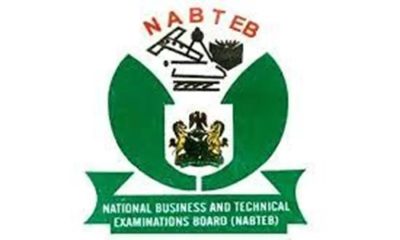
 Education3 months ago
Education3 months agoNABTEB Registrar advises automotive, locomotive Engineers to do more to diversify Nigerian economy
-

 Education6 months ago
Education6 months agoTVET will change Nigeria for good, says NABTEB Registrar
-
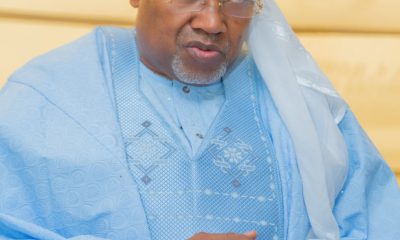
 Opinion3 months ago
Opinion3 months agoEngr. Kawu: A Heroic Homecoming for a Man of the People
-
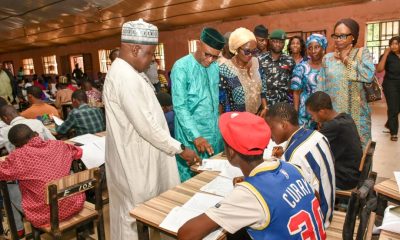
 Education6 months ago
Education6 months agoTVET: FG conducts entrance exam into FTCs for 30,000 students


